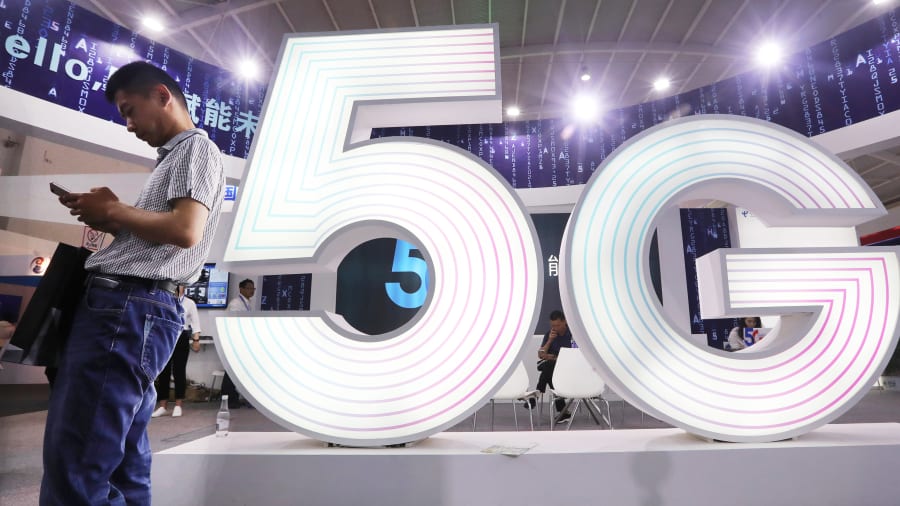By Jeff Ferry, CPA Chief Economist
You are probably hearing a lot about 5G wireless, which is the next big thing in cellular telephone networks.
The coming fifth generation of wireless will multiply the speed of cellular reception from around 100 megabits per second to multiple gigabits per second. This new technology will make many amazing new activities possible: things like telemedicine, remote-controlled cars…not to mention new apps that will enable teens to share things in new ways their parents would probably prefer not to know about.
But this new technology also raises serious security risks for the US. The world leader in 5G technology is the notorious Chinese company, Huawei. This huge company is owned by the Chinese government. It has been accused repeatedly of intellectual property theft, and it has used its networks as tools of espionage for the Chinese Communist Party.
The concern, shared by many in the Trump administration, Congress, and our intelligence community, is that Huawei will use its leadership in 5G to become the main telecom network in many countries in the world, opening huge risks for secure American communications with our allies. Huawei’s growing dominance also gives it clout over US chip companies. Chips or semiconductors are at the heart of US technology leadership and the threat of Chinese manipulation of these companies is scary and dangerous.
For all these reasons, the Trump administration has been urging foreign governments to ban the Chinese company from their networks, but with very limited success. As UK government leaders said in January when they decided to allow Huawei to build British 5G networks: “The Americans have not shown us an alternative.”
The problem is that the collapse of the first Internet bubble in 2001-2004 wiped out the major North American makers of complete telecom networks (Lucent, Nortel, and Motorola) and laid the groundwork for the rise of China. Yet there is a new generation of small American network companies in the early stages of rolling out new, disruptive 5G networks. These companies are based in America’s tech centers like Silicon Valley, Boston, and the Dallas area. They are scarcely known in Washington. Yet they are the solution to our 5G dilemma.
Washington political leaders in the Trump administration and on Capitol Hill need to bring the full weight of federal support to help these companies grow and develop. There are four names that lead the pack: Altiostar, Commscope, Mavenir, and Parallel Wireless. Most of them already provide 3G or 4G telecom networks to smaller telecom companies. Federal support—which need not involve new money, but instead the redirection of existing funds such as those going to finance rural networks—can speed up their development and help them build out their technology to the point where it can be the backbone of major nationwide 5G networks in a couple of years.
That would be a great solution because in point of fact nobody expects 5G networks to be profitable or widely used for at least three to five years. So we have time to do this right.
What’s more, these alternative network makers have the potential of beating Huawei at its own game. Technologies like OpenRAN, which will allow telecom companies to mix and match many different network components, will make networks more cost-effective and more flexible than networks from Huawei, Ericsson, or any of the traditional providers. One alternative network maker, Parallel Wireless, is working on new highly integrated chip designs that would be more powerful than the chips made by Huawei’s internal chip company.
Finally, these new companies can work closely with our defense and intelligence establishment to ensure their needs are met. Most of these companies are already working with the Department of Defense.
The fundamental truth is that for America to defend itself and its allies, it needs to own the crucial technologies of the 21st century, and it needs to have US-based companies that are strong enough to deliver world-class products that US telecom companies and our allies can rely on.
Congress and the administration need to make this a top priority.
Jeff Ferry is Chief Economist at the Coalition for a Prosperous America. He worked for telecom and networking companies for 15 years.













